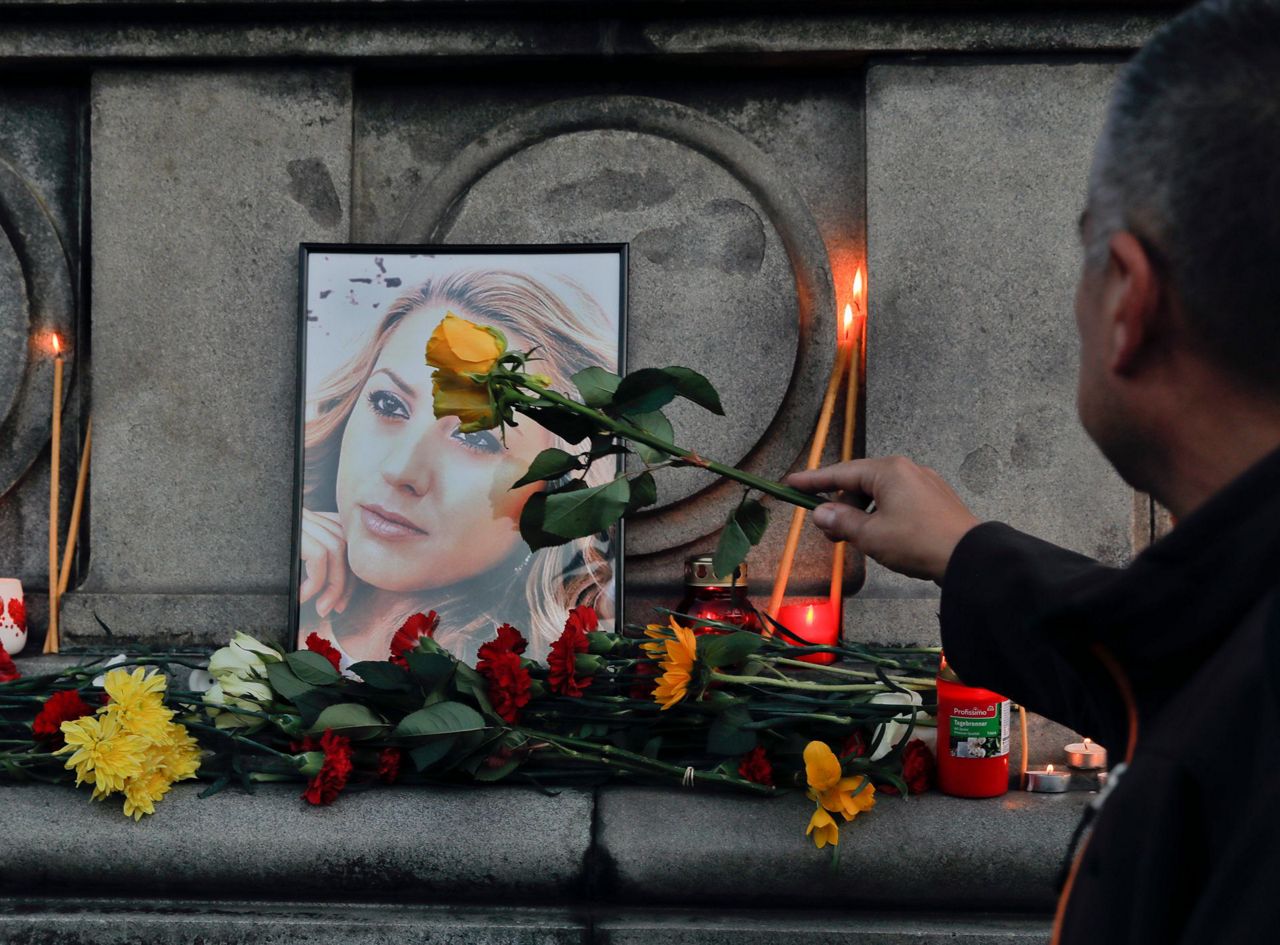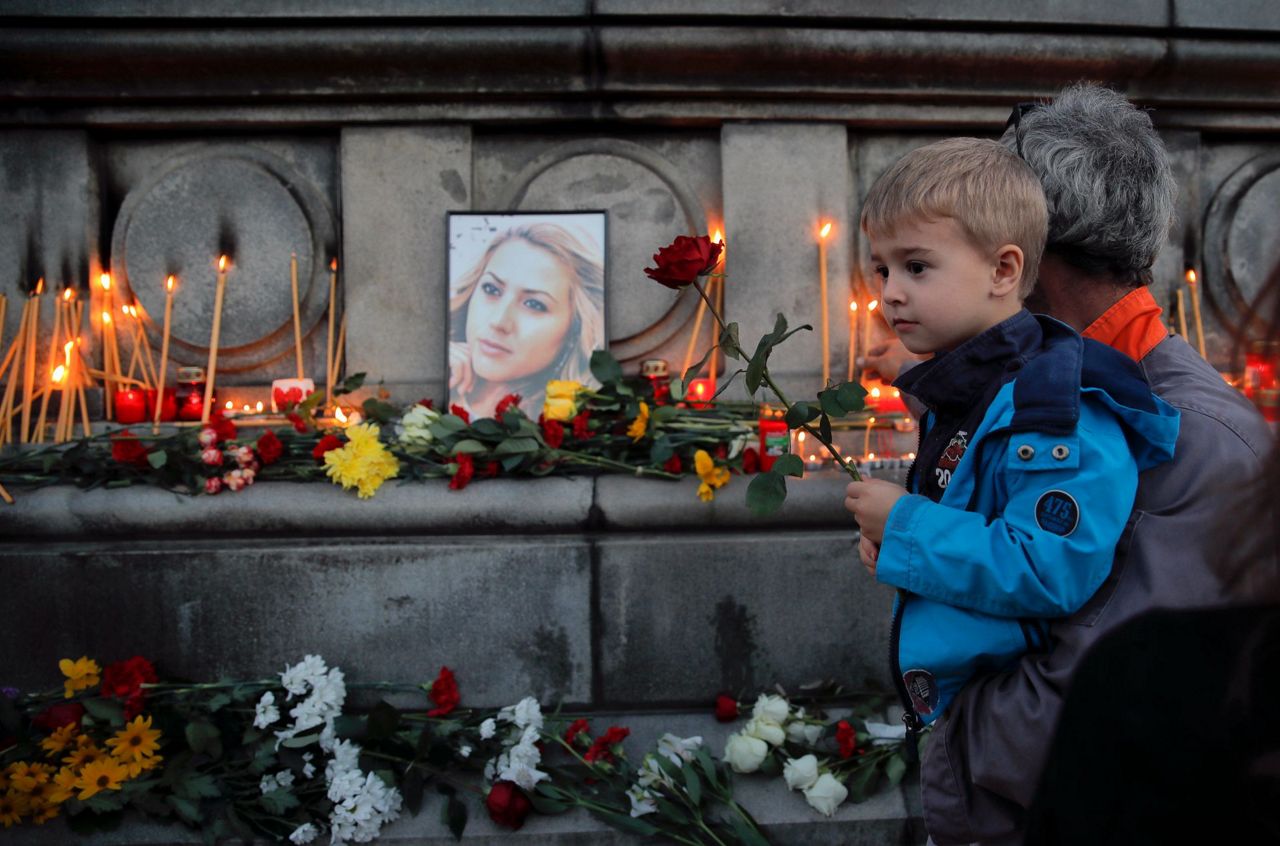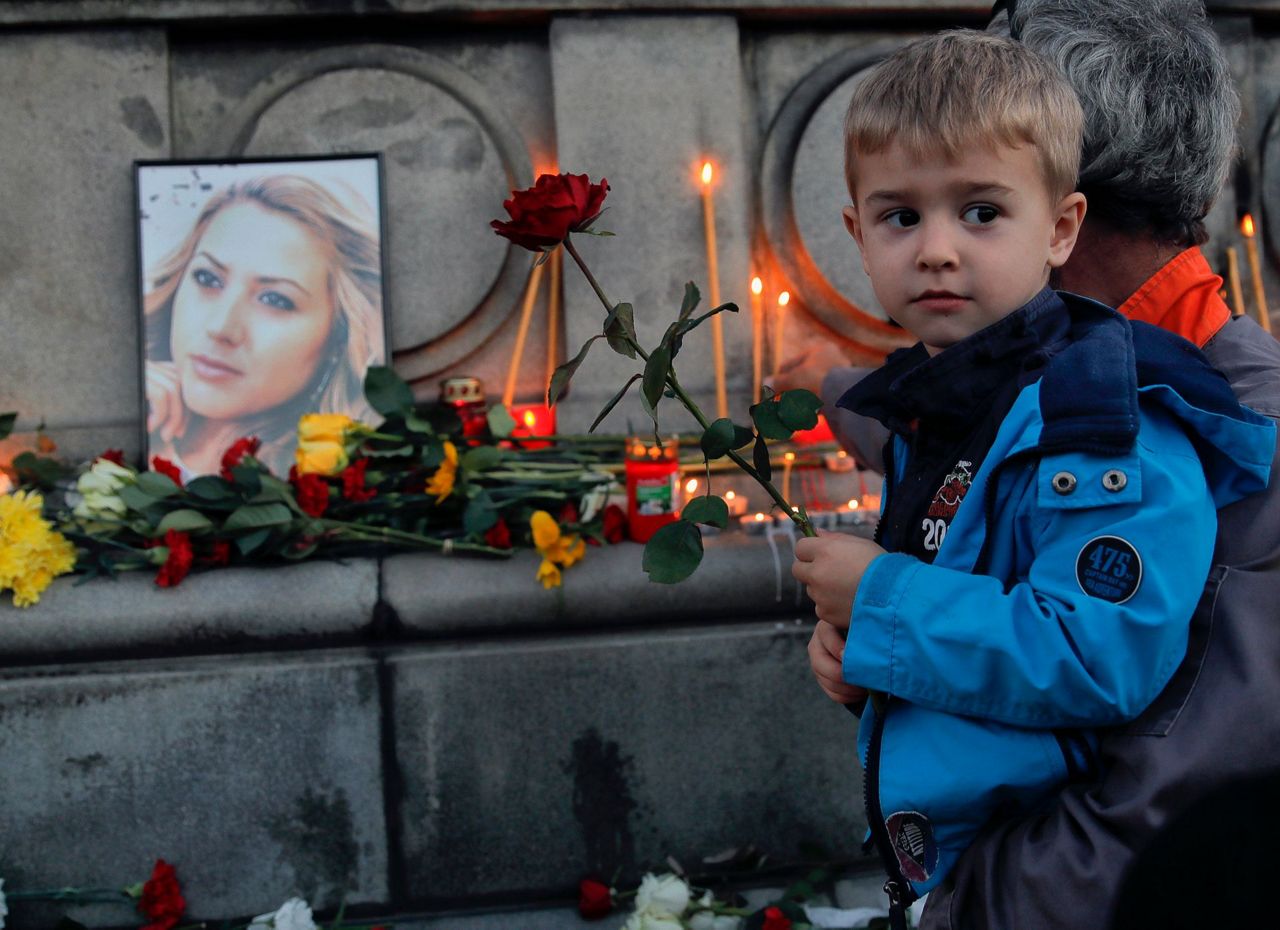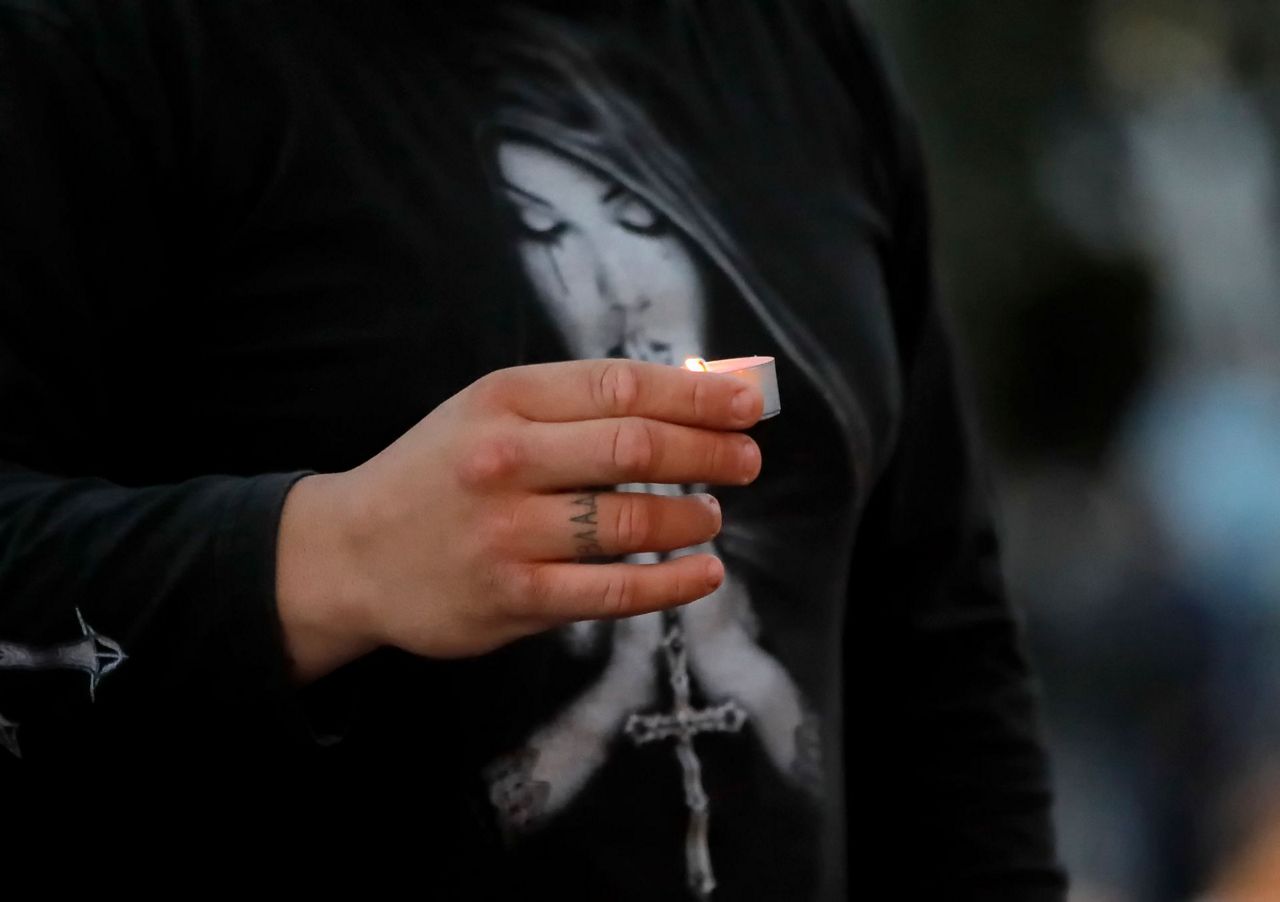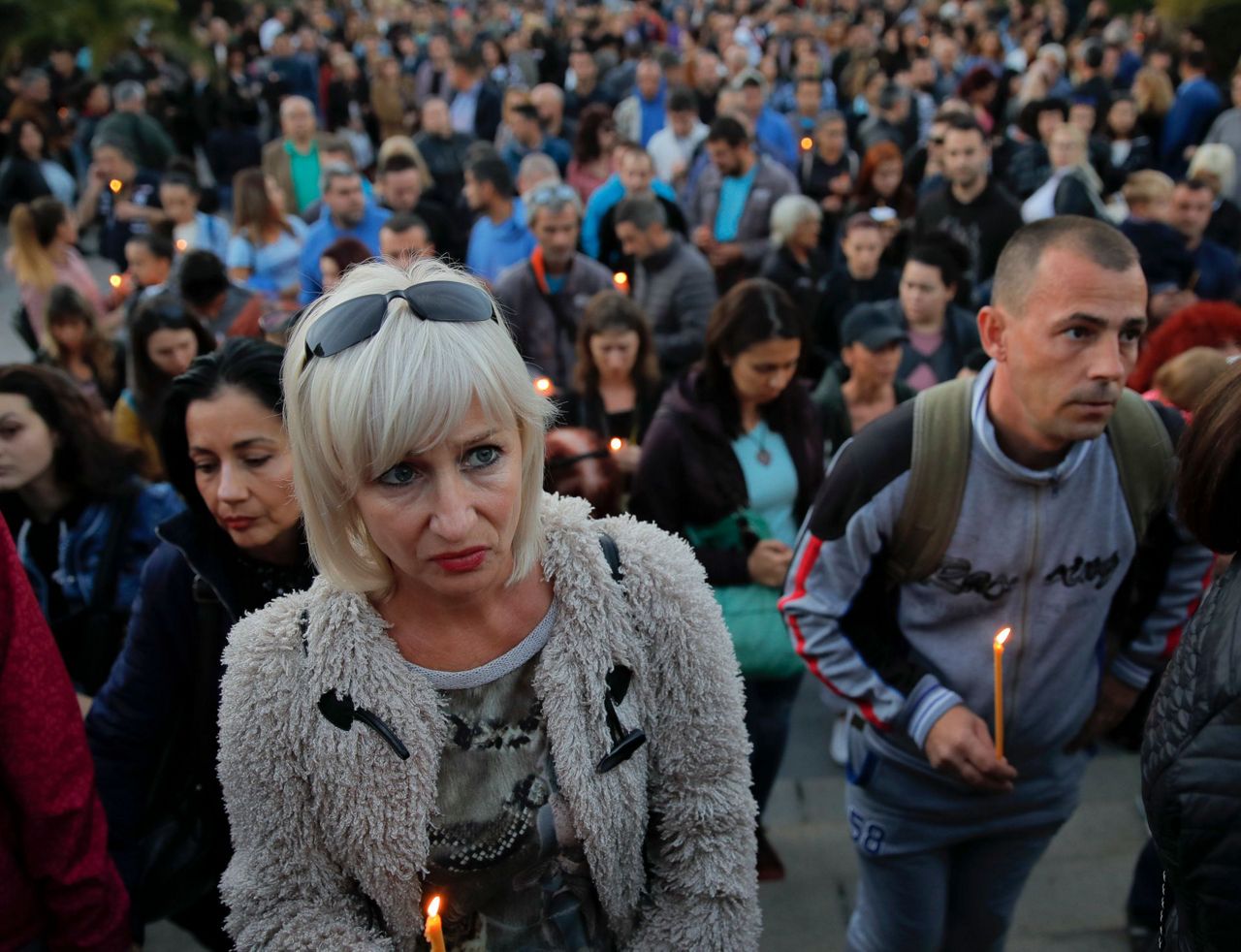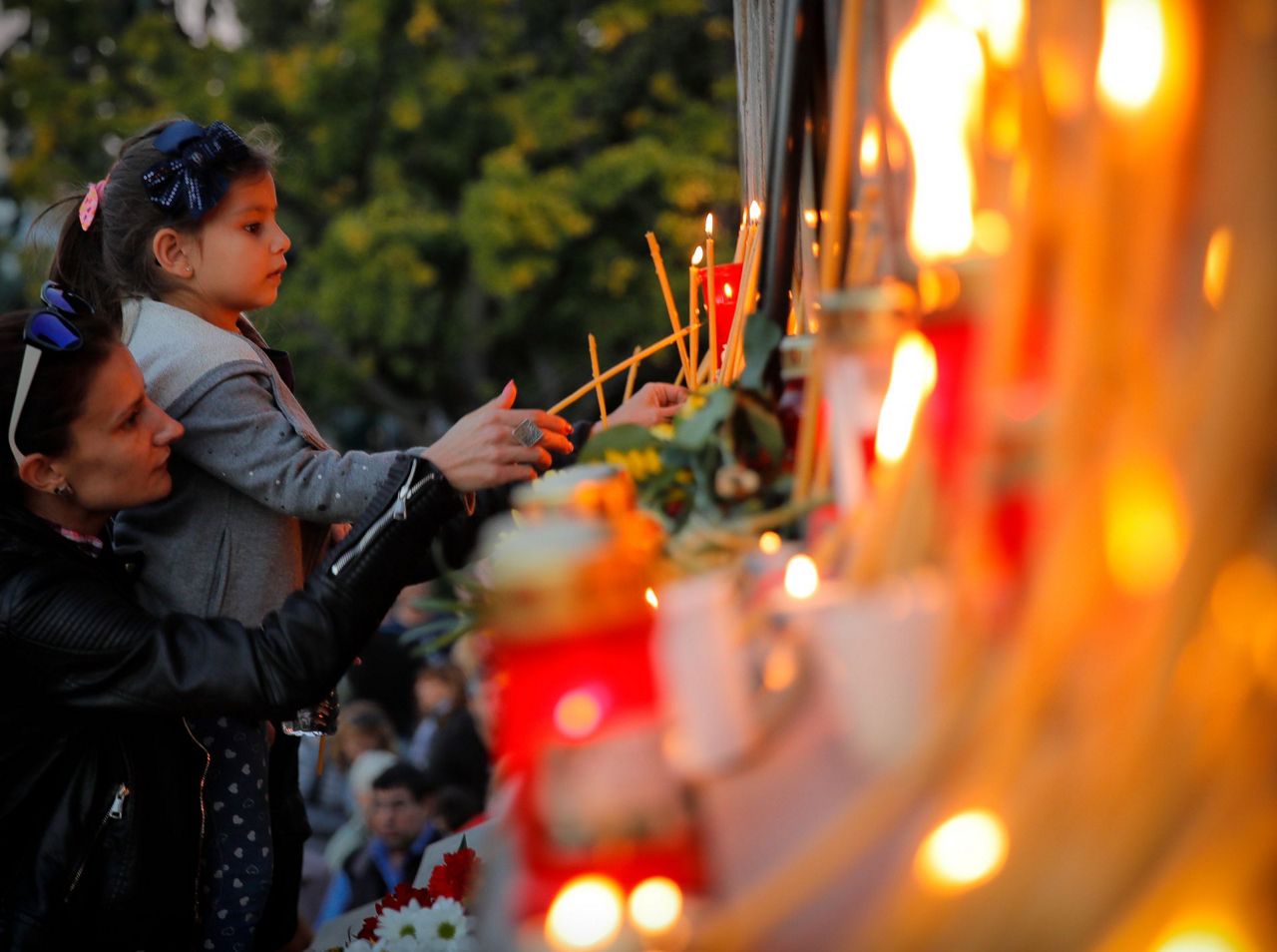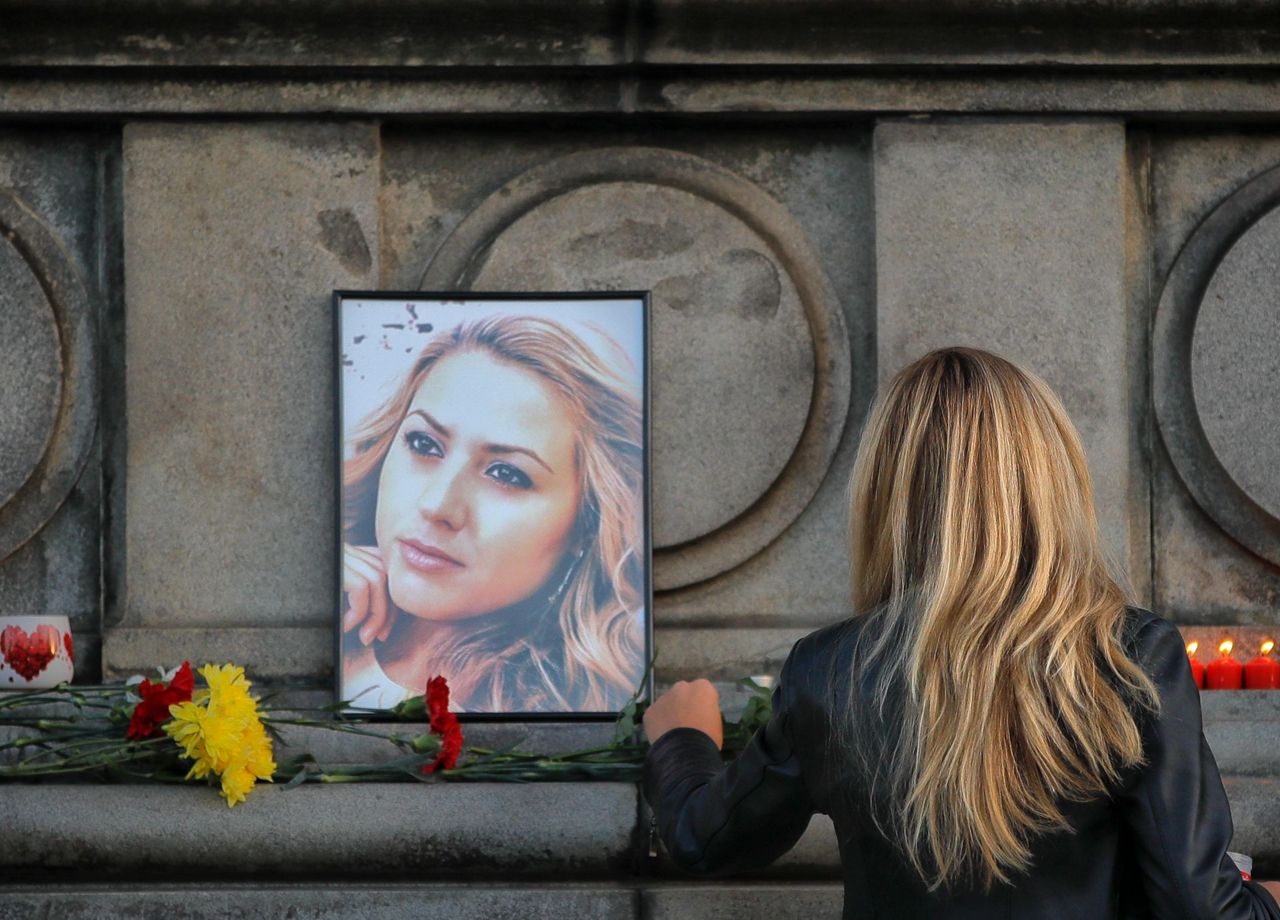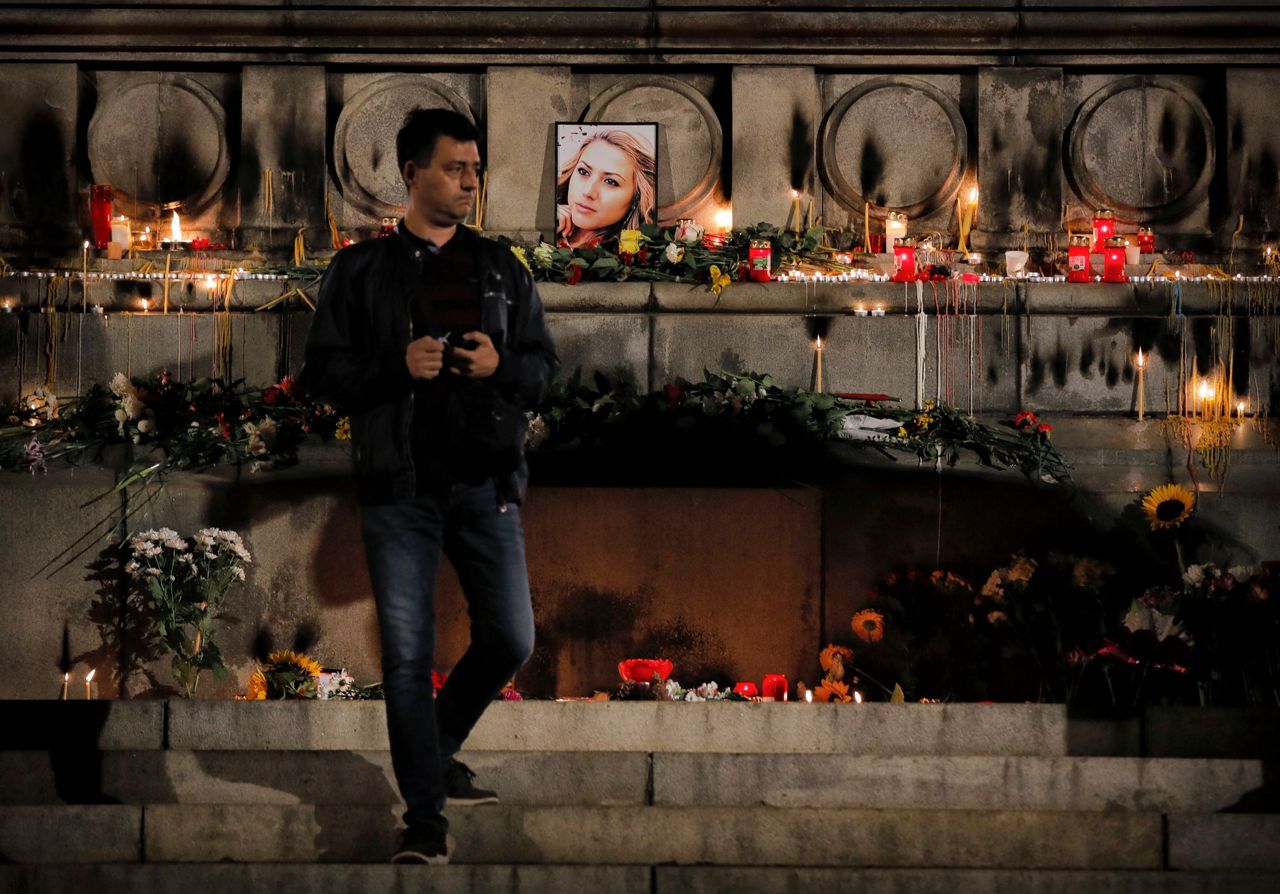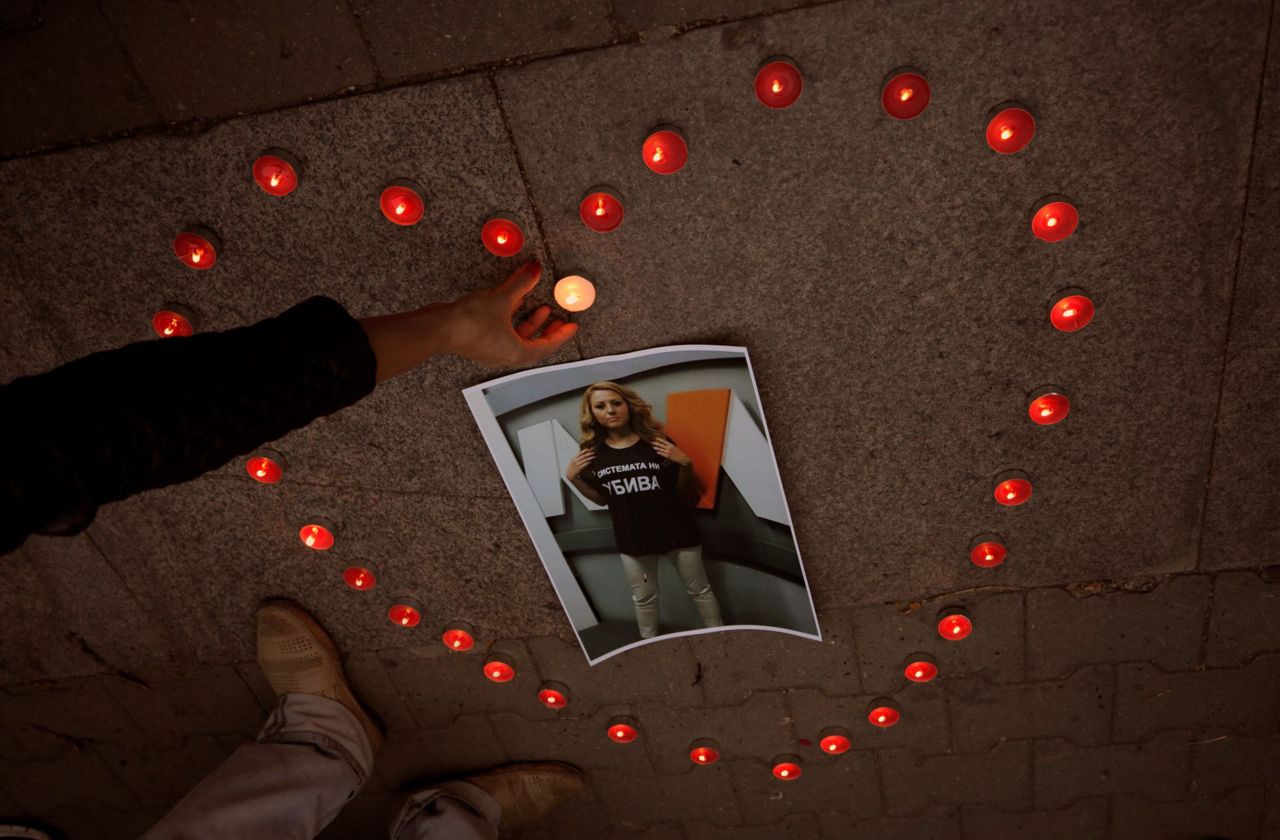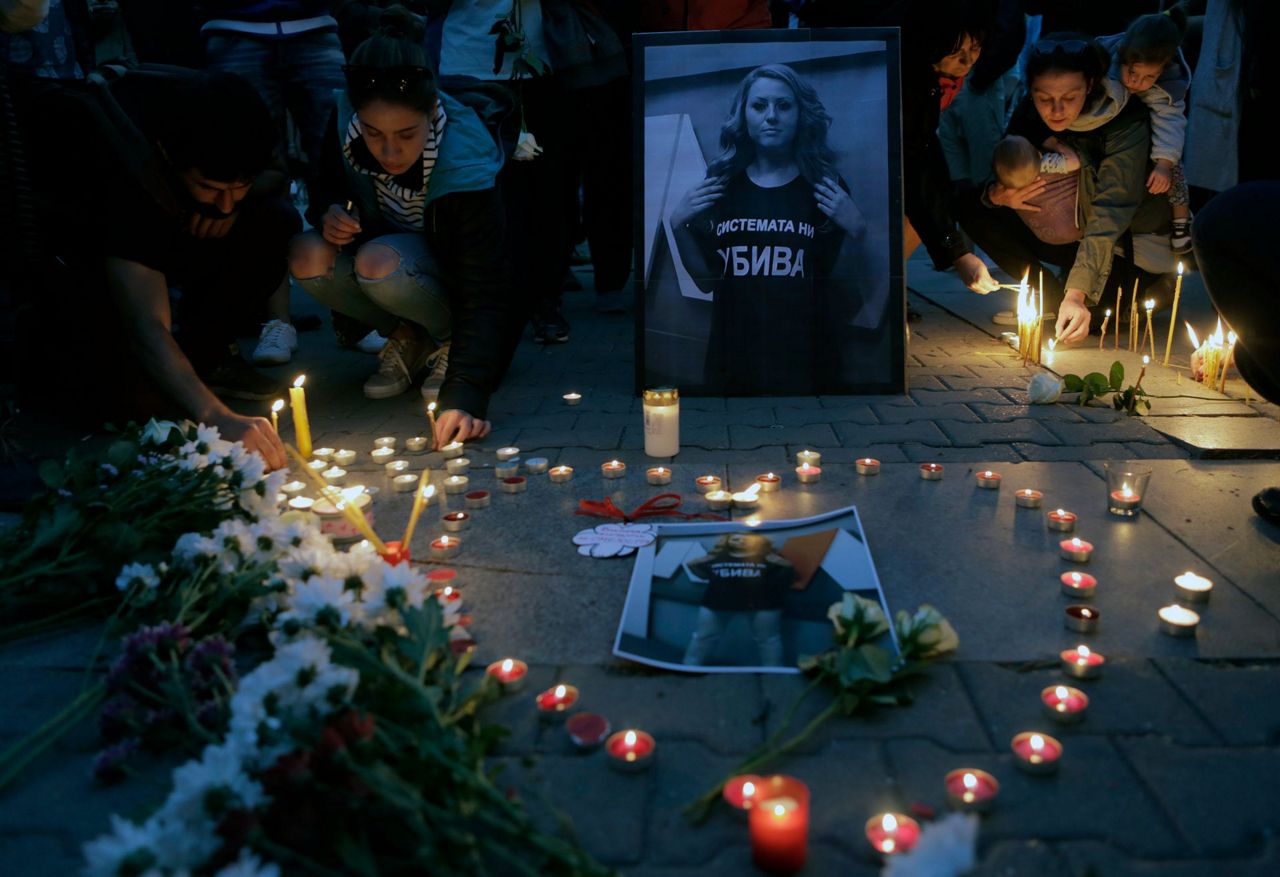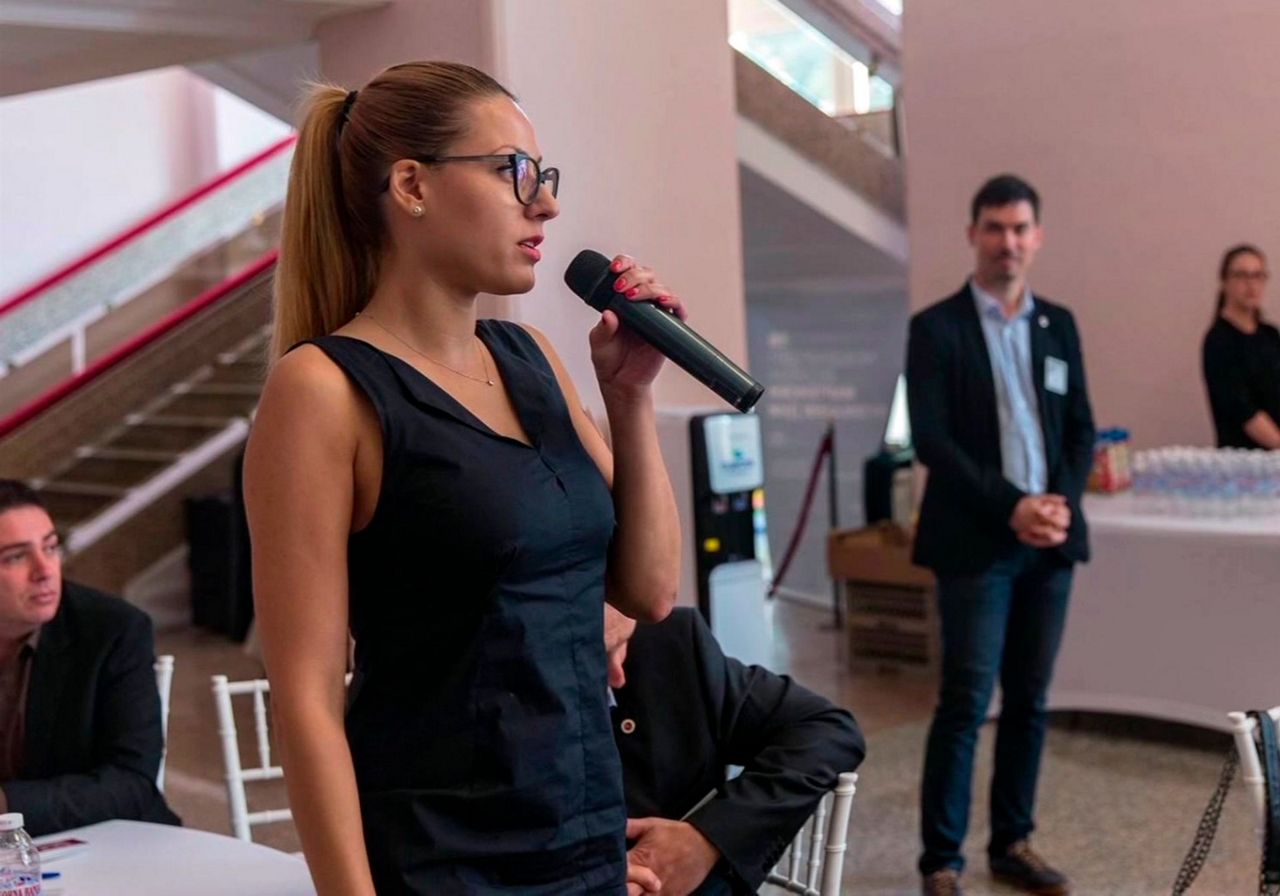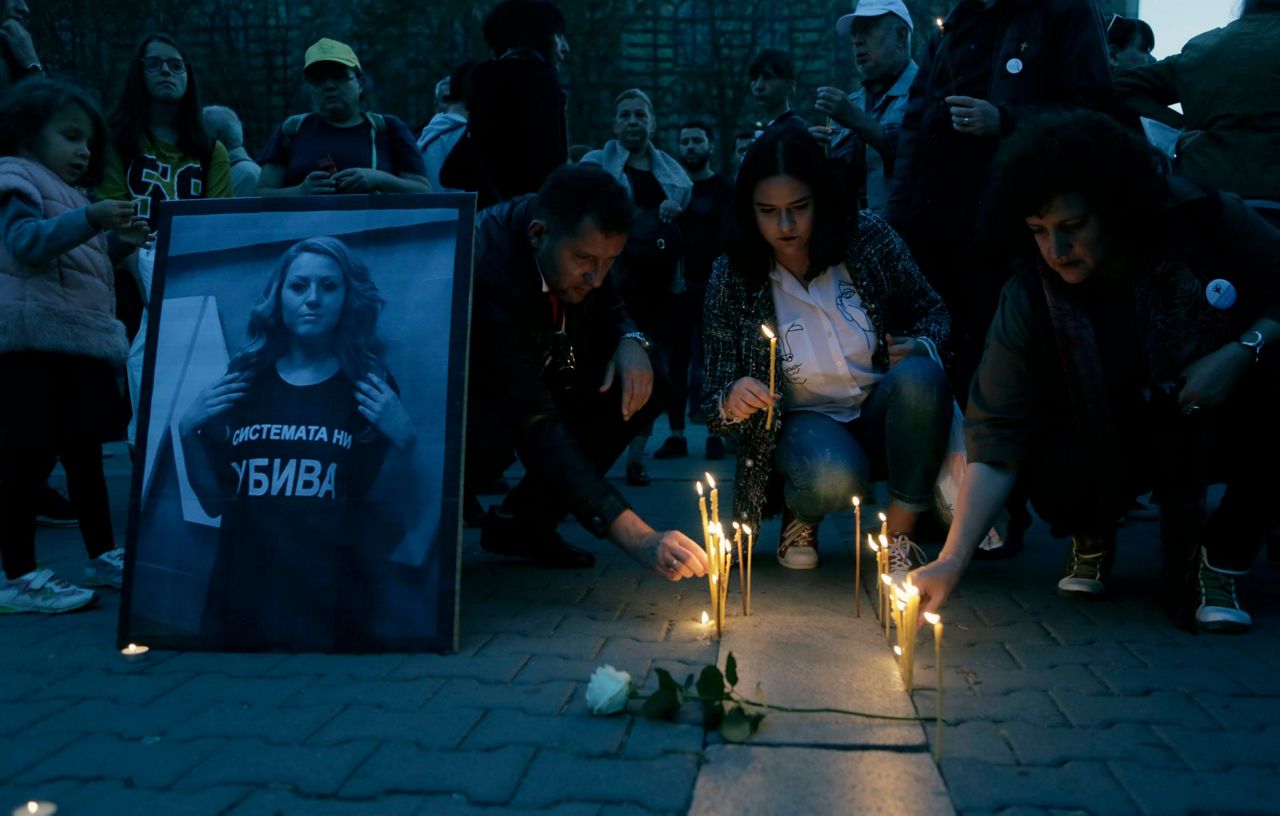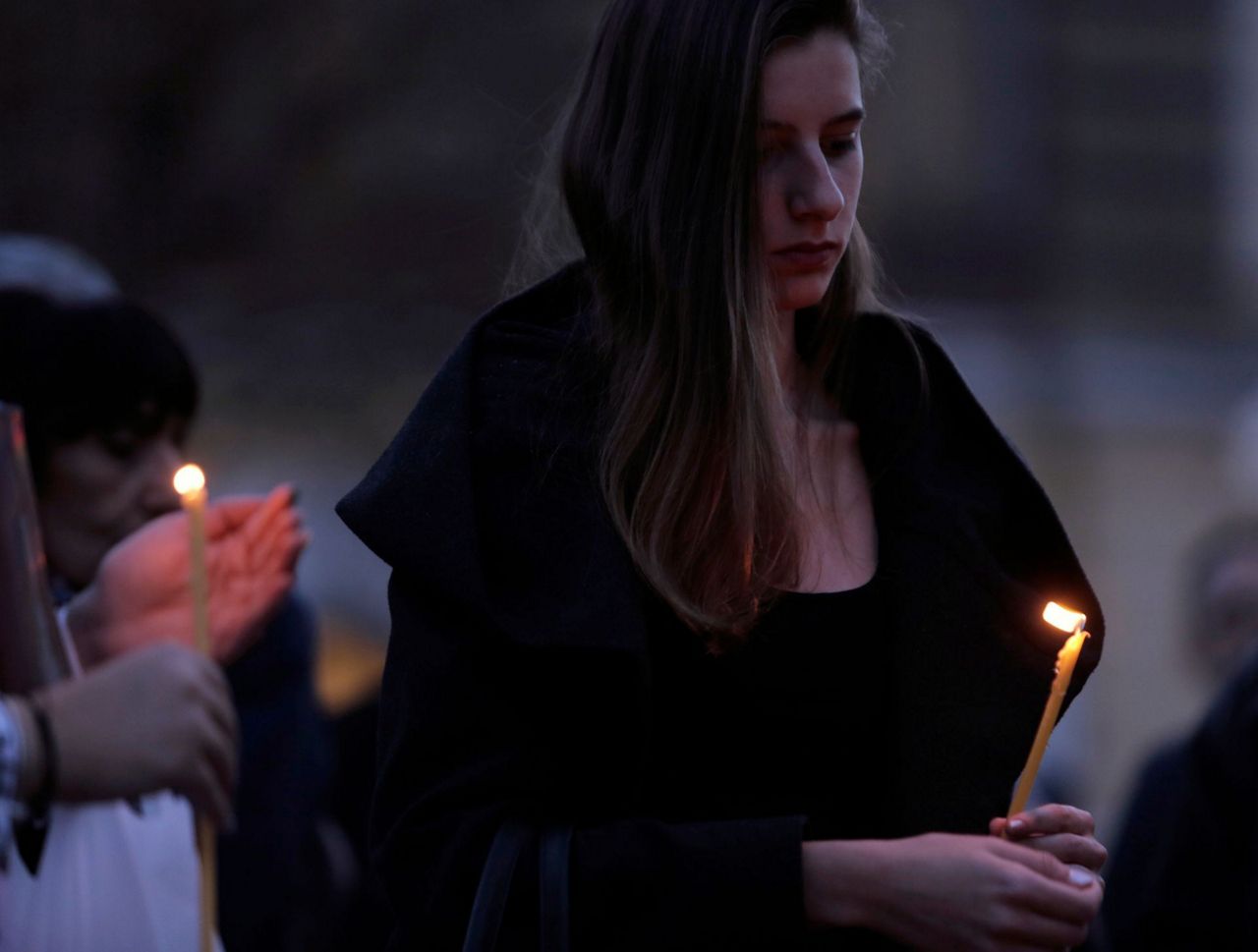BUCHAREST, Romania (AP) — Bulgarian police are investigating the rape and slaying of a female television reporter whose body was dumped near the Danube River after she reported on the possible misuse of European Union funds in Bulgaria.
Authorities discovered the body of 30-year-old Viktoria Marinova on Saturday in the northern town of Ruse near the Romanian border. Police said she had been raped, beaten and strangled and her body was found in a park near the river.
Marinova was a director of TVN, a small TV station in Ruse, and a TV presenter for two investigative programs.
Journalists' groups and foreign officials expressed shock. Harlem Desir, the media freedom representative for the Organization for Security and Cooperation in Europe, demanded a "full and thorough investigation" of Marinova's slaying.
A Bulgarian investigative online media site went further, calling for an independent international inquiry and saying corruption could compromise an investigation by Bulgarian law enforcement.
Bulgarian Interior Minister Mladen Marinov insisted Monday there was no evidence to suggest the killing was linked to Marinova's work.
"It is about rape and murder," he said.
Chief Public Prosecutor Sotir Tsatsarov, on a trip to Ruse, said authorities had no new leads on a motive.
"At this stage, let's be careful, not because we don't have anything to say, but because every word uttered loosely could damage our work," he said.
Bulgarian police said they were considering all possible scenarios and examining both Marinova's personal and professional lives for leads.
Hundreds of Bulgarians turned out Monday night for vigils to honor Marinova. In Ruse, mourners, some tearful, placed candles, her portrait and roses— the national flower— at the foot of a monument.
In the Bulgarian capital of Sofia, mourners gathered outside a church. One participant, Kristina Petkov, said Bulgarians now had "zero" trust in authorities.
"Whatever results the investigation (into Marinova's death) shows, people won't believe them," she said.
Corruption is endemic in Bulgaria, a Balkan nation that joined the EU in 2007 and was ranked 71st on Transparency International's corruption list last year. Joining the bloc opened an enormous spigot of possible new EU funding for Bulgarian infrastructure projects or other programs designed to bring the nation up to EU standards — funds that were very attractive to both government officials and criminal networks.
Marinova's final show on Sept. 30 was a program about Attila Biro, an investigative journalist with the Rise Project Romania, and Dimitar Stoyanov from the Bulgarian investigative site Bivol.bg. The two men were briefly detained Sept. 13 south of Sofia as they investigated a tip that documents connected to suspected fraud involving EU funds were being destroyed.
Bivol.bg owner Assen Yordanov said he couldn't directly link Marinova's slaying to her work, but noted her show tackled "our very sensitive investigation into the misuse of EU funds."
"This is a topic on which no other Bulgarian national media dared to report on," he told The Associated Press. "To get to the truth, we are calling for an independent investigation.... we want independent European investigators to get involved because we believe the Bulgarian authorities are part of this country's criminal network."
Yordanov said his journalists were getting threats to their safety for reporting on government corruption.
Margaritis Schinas, spokesman for European Commission President Jean-Claude Juncker, said Monday the commission expected "a swift and thorough investigation .... that will bring those responsible to justice and clarify whether this attack was linked to her work."
He quoted Juncker as saying previously that "too many" journalists are being intimidated, attacked or murdered and "there is no democracy without a free press."
The German government also sharply condemned the slaying, with the Foreign Ministry saying it was imperative "that there's a fast investigation and that this horrible event will be illuminated as comprehensively as possible."
Sven Giegold, a German member of the Greens party in the European Parliament, said all of Europe should worry about Marinova's slaying.
"First Malta, then Slovakia, now Bulgaria. It is unacceptable that in Europe journalists are getting killed again," he said, referring to the slayings of two other investigative journalists in those EU countries.
United Nations Secretary-General Antonio Guterres is paying "very close attention" to "a very worrying increase" in violence against journalists, especially women journalists, spokesman Stephane Dujarric said. Guterres has raised the issue with U.N. member states privately and publicly, Dujarric said.
Maltese journalist Daphne Caruana Galizia , who investigated local government corruption, was killed in October 2017 by a car bomb. Slovak journalist Jan Kuciak was shot dead along with his fiancee in February after he reported on corrupt ties between Slovak officials and Italian mobsters. Kuciak's reporting and his slaying brought down the Slovak government.
In addition, Swedish journalist Kim Wall was tortured and murdered during a private submarine trip in August 2017. Danish submarine inventor Peter Madsen was convicted and sentenced to life in prison earlier this year.
__
Raf Casert in Brussels, Kirsten Grieshaber in Berlin, Teodora Barzakova, in Sofia, Bulgaria, Edith Lederer in New York and Vadim Ghirda in Ruse, Bulgaria contributed.
Copyright 2018 The Associated Press. All rights reserved. This material may not be published, broadcast, rewritten or redistributed.




